
Tailoring care for LGBTQ patients with cancer – a long way ahead?
With a recent survey in collaboration with SIOPE and the recognition of LGBTQ as a specific patient population in the recommendations for a Global Curriculum in Medical Oncology, ESMO is at the forefront of a more inclusive oncology
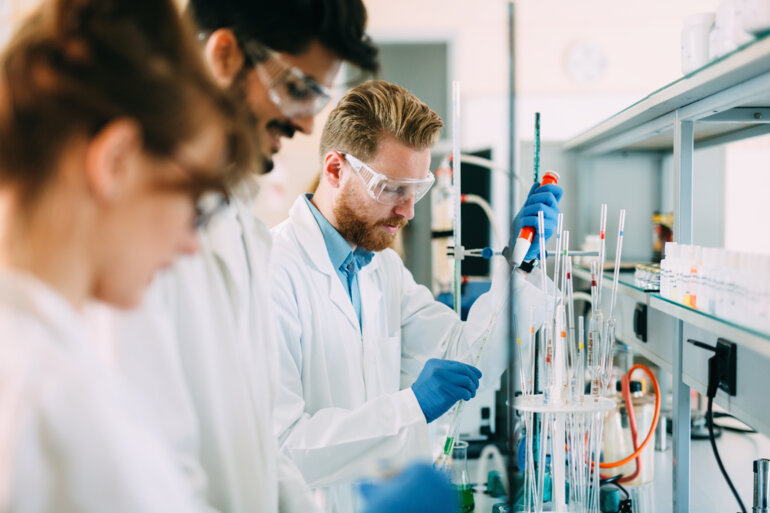
Locally advanced gastrointestinal cancers: moving forward in the neoadjuvant setting
Recent results from research have changed the treatment paradigm for some digestive tumours, but further evidence is needed to finetune the neoadjuvant approach
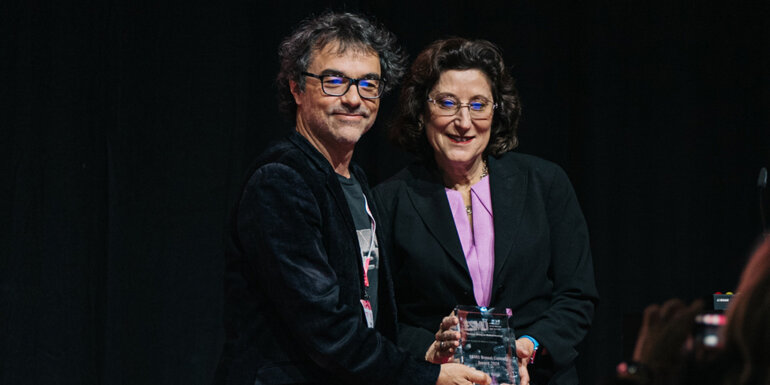
Breast cancer research: lessons learnt from the past will shape the future
In her key lecture, the 2024 ESMO Breast Cancer Awardee Prof. Hope S. Rugo reflects on the current challenges in the field

Extending the continuum of care for metastatic colorectal cancer
While novel agents continue to enrich the therapeutic armamentarium in this setting, patients ask for a longer survival, but also for a better quality of life

Treating colorectal cancer in the biomarker era – what's next?
In an interview, Prof. Julien Taieb comments on the major advances from colorectal cancer research which are driving the development of molecular-based therapies
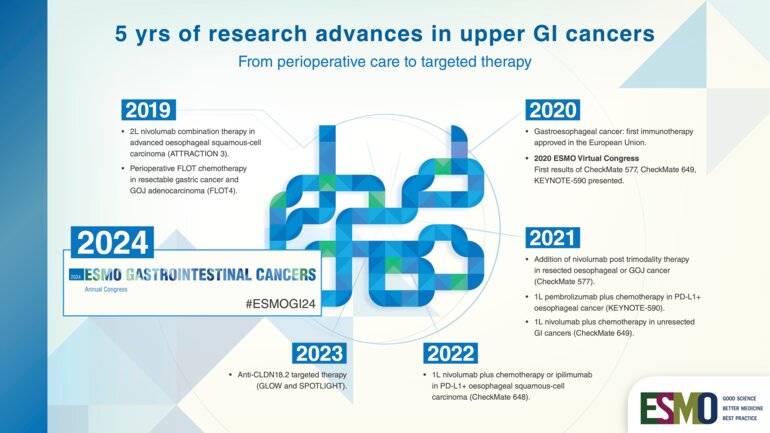
Research in upper gastrointestinal cancers makes a leap forward
In the last few years, study findings have changed clinical practice and offered new opportunities of care to many patients
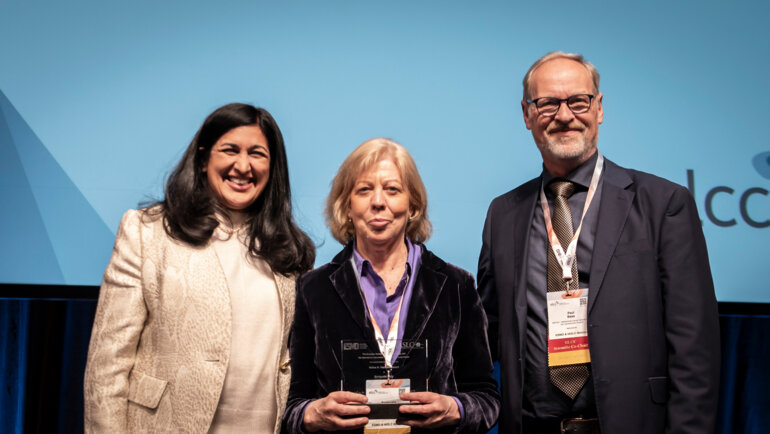
How ‘precise’ has lung cancer treatment become?
Precision oncology is evolving from advanced to early-stage NSCLC, highlights Prof. Enriqueta Felip in her Heine H. Hansen Award lecture at ELCC 2024
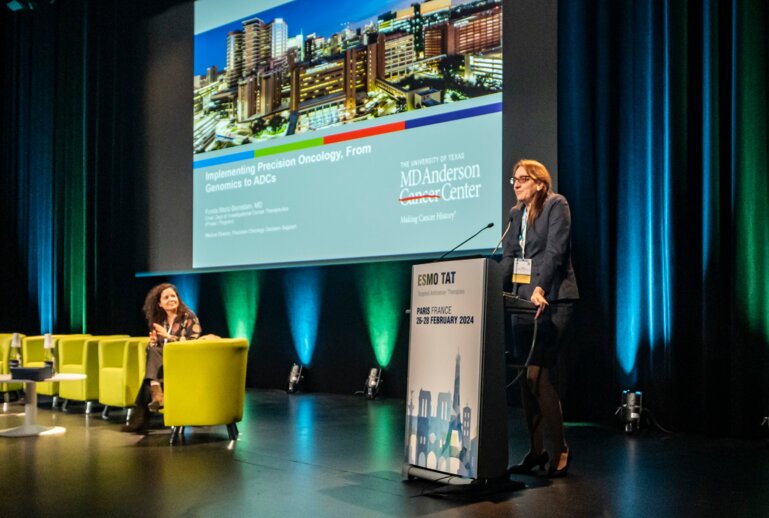
Wider implementation of precision oncology is still challenging
The 2024 TAT Honorary Awardee Prof. Funda Meric-Bernstam discusses progress made and how to overcome current obstacles in the field

Challenges in cell-based immunotherapies create opportunities for progress
According to the 2023 ESMO Immuno-Oncology Awardee, Steven A. Rosenberg, the keys to progress are identifying the optimal characteristics of antitumour effector lymphocytes, cancer antigen identification and strategies for overcoming resistance mechanisms to enhance immune-cell function
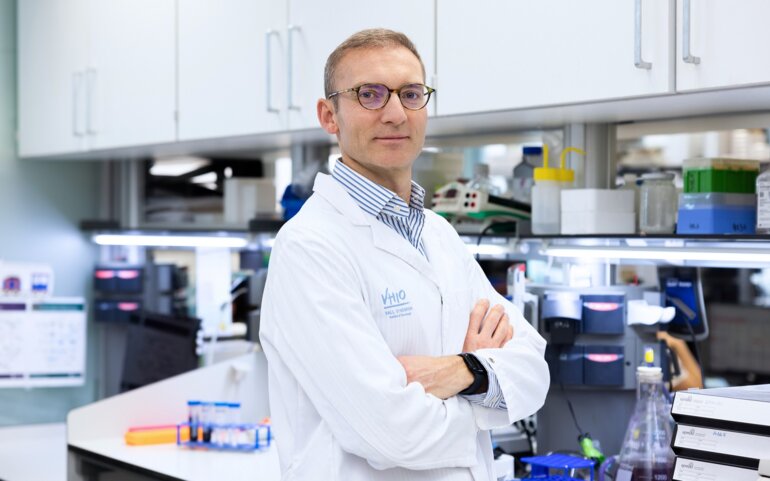
The future of real-world research is now
ESMO is at the forefront of digital oncology, with some initiatives that support oncologists navigating the emerging opportunities in the field of real-world data research
